From the Field Farming with Joy: How to build resilience one bean at a time
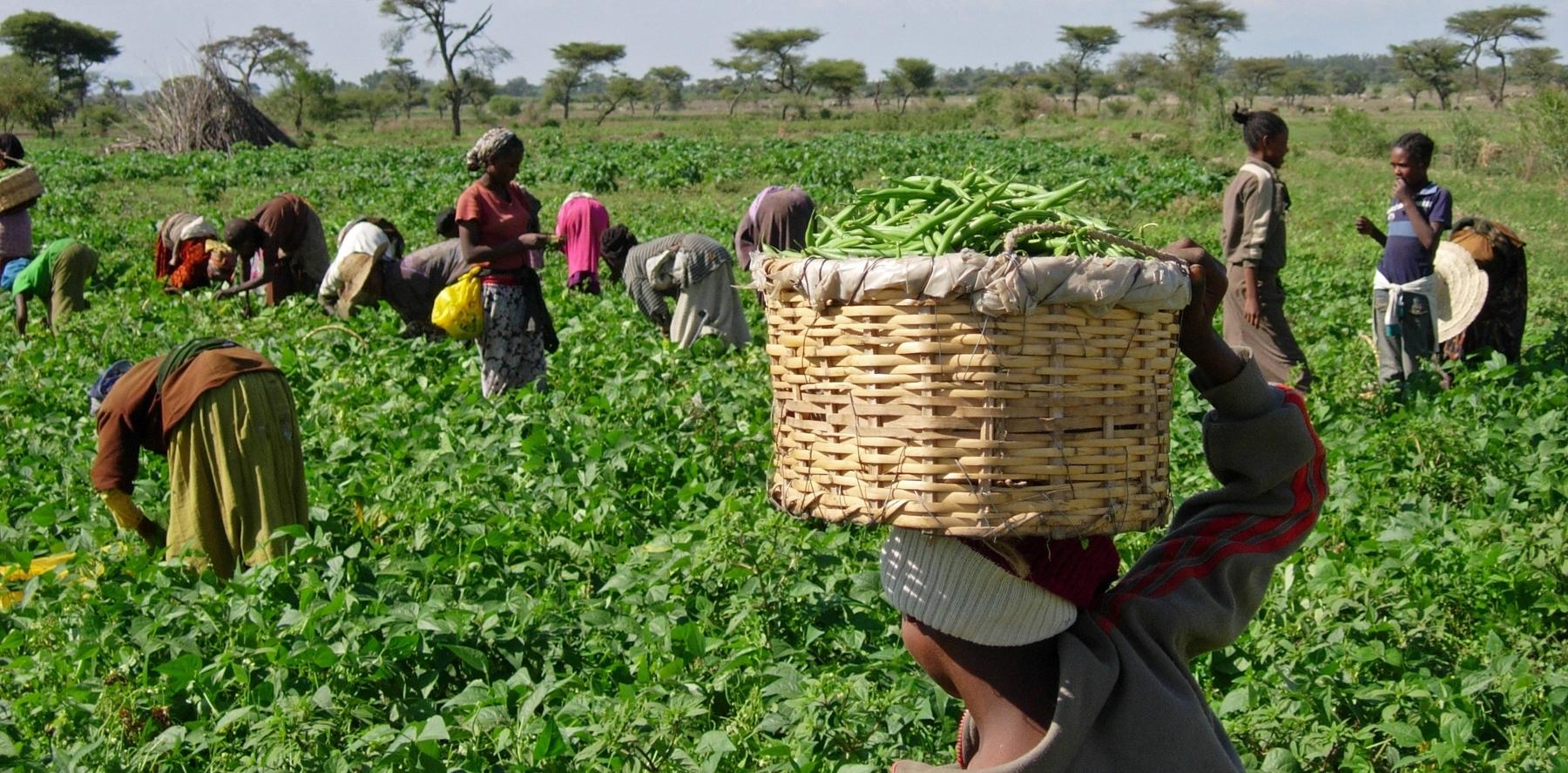
Joy Mugisha is leading the way for rural women in Uganda by conserving and promoting local crop diversity.
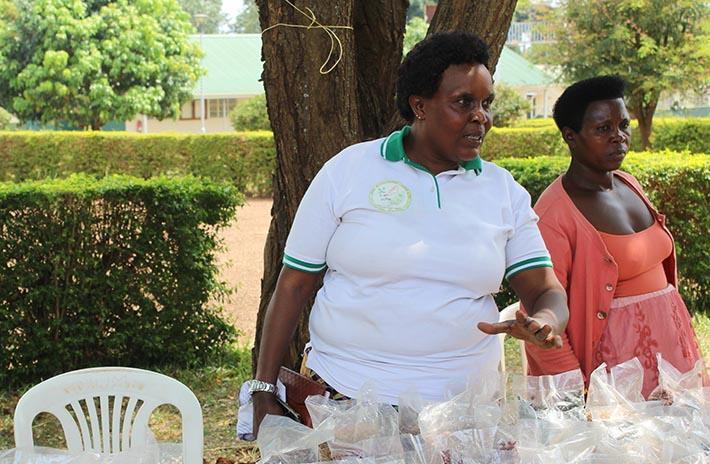
Joy and part of her bean collection on display at a seed fair in Hoima, March 2019. Credit: Bioversity International / R.Vernooy
Joy Mugisha stands tall in front of her demonstration farm, an island of conservation and productivity in the middle of the degraded hills of Kagango, a district of Bushenyi, in south-western Uganda. Joy is a farmer whose mission is to promote the multiplication and use of indigenous seeds at large scale in Uganda, by supporting her community through on-farm trainings and workshops.
Her journey started in 2005, when she was involved, as a representative of Bushenyi’s farmers, in the project ‘Conservation of crop diversity to control pests and diseases in support of sustainable agriculture,’ led by Bioversity International[1] and the Ugandan National Agricultural Research Organisation (NARO). At that time, Joy was growing different kinds of crops, mainly beans and bananas, for home consumption. She used to obtain seeds from the informal seed system, local markets, neighbors and friends.
Seed systems include a variety of actors and activities, from conservation to breeding, from seed inspection to distribution. One common past shortcoming in breeding systems was to involve only men farmers in the identification of important traits. This frequently led to a rejection by women farmers when the seeds lacked traits they valued.
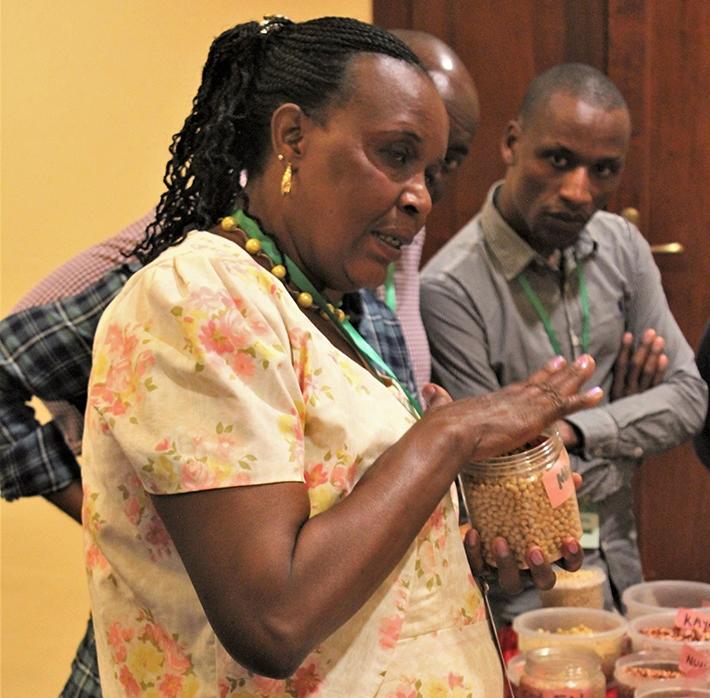
The project led by Bioversity International and NARO in Uganda put a strong focus on equitable gender outcomes, while achieving more inclusive resultsfor biodiversity conservation and use. As part of the project, Joy was trained together with four other farmers on the use of crop diversity to manage pests and diseases on farm. She learned that some varieties of crops were becoming rare in her region, while others were no longer grown in the area at all. She became aware of the value of crop diversity.
Joy explains, “We also realized that in Uganda, the agricultural sector is dominated by small-scale farmers. Their agricultural productivity has remained low, despite different interventions in the sector over the last two decades, including provision of seed of improved cultivars and agricultural advisory services.” The low productivity is due also to the lack of a reliable source of locally adapted planting materials. This situation is exacerbating households’ food insecurity and poverty.
To address this issue, the project proposed forming community seedbanks to ensure better seed quality for more productive and sustainable agriculture. In particular, activities focused on strengthening avenues for community-based production and distribution of selected priority crops.
“I joined the Kiziba community seedbank from the very beginning and became one of its leaders. Over time and thanks to the technical support of Bioversity International and NARO, we learned how to produce good quality bean seeds,” Joy says.
The Bean Encyclopedia
The Kibiza community seedbank officially opened in June 2010. Joy and her family mobilized initial investment capital from farmers in Kabwohe, seed varieties from Nakaseke and Rubaya Kabale, and others from the National Genebank of the NARO Plant Genetic Resources Centre (PGRC) in Entebbe.
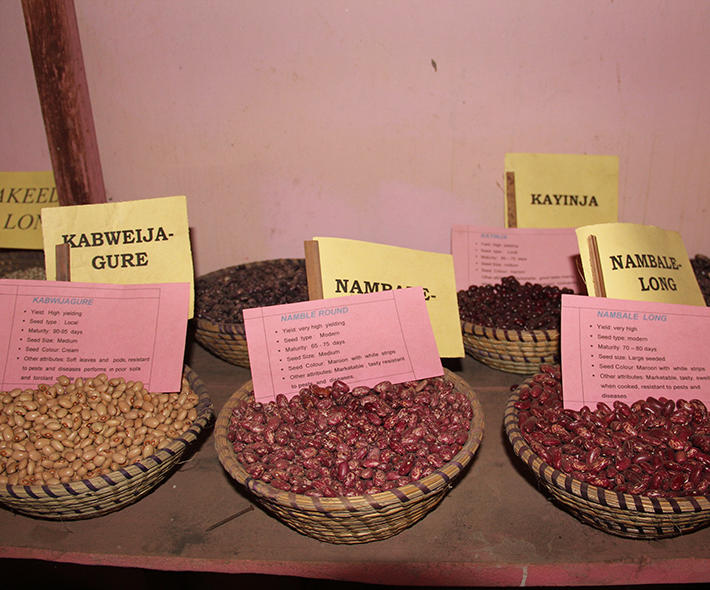
A community seedbank is more than just a physical place where seeds are stored, it is also an agreement among individuals to jointly conserve their traditional varieties of crops and exchange these genetic materials with others. It is deeply connected to local food culture.
The community seedbank in Kiziba is managed by a committee of 12 members, selected by the farmers. Six of the twelve members are women, as well as 60 percent of seedbank beneficiaries. Four villages joined the initiative: Rubaare, Rwenkarabo, Ntungamo and Nyamirimo.
As seed quality assurance manager, Joy played a key role in the development of the seedbank and she was among the 13 farmers declared ‘Best Farmer of the Year’ in 2016, from a pool of 710 candidates. Season after season, Joy and the committee conducted bean trials in the four villages, assessing and collecting data on pests and diseases, such as bean fly, anthracnose and angular leaf spot, and their effect on yield.
“Through this experience, we were able to become experts in research on pests and diseases affecting both banana and beans. We started to train other farmers on how to produce quality seed,” Joy says. “I became known as Joy Mugisha the Bean Encyclopedia.”
‘Field Days’ and demonstration gardens, managed by Joy and other farmers, proved to be an effective tool to transfer practical skills to the community and raise awareness about the importance of quality seeds to improve productivity and food security. These gardens were also used to test novel agronomic practices to improve crop management. The same approach was replicate by NARO in other districts of the region.
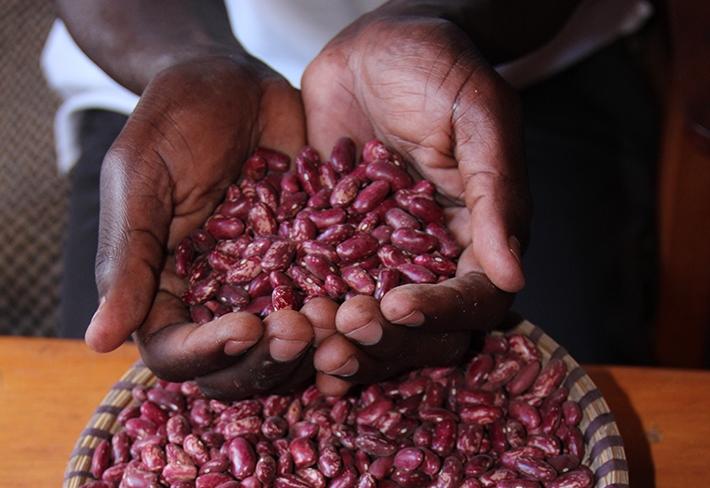
As a result, bean yields in Bushenyi, Sheema, Ntungamo, Isingiro and Mbarara increased 20–24 times after two years of experimentation. On average, yields varied between 500kg–700kg per acre depending on the district and the rains received.
Based on the knowledge and experience gained, Joy started her own seed enterprise and bank called Joy and Family Demonstration Farm. So far, more than 30 farmers have collaborated with the enterprise, which is safeguarding 72 varieties of beans.
Joy remarks, “Now we hope that the Government continues to support the scaling of this model of seed production and distribution.” The aim is to achieve increased availability of high-quality seed for improved agricultural productivity of selected crops, thus meeting high-end market standards and contributing to improved household food security and income in Uganda.
[1] As of 1 January, known as the Alliance of Bioversity International and CIAT.
